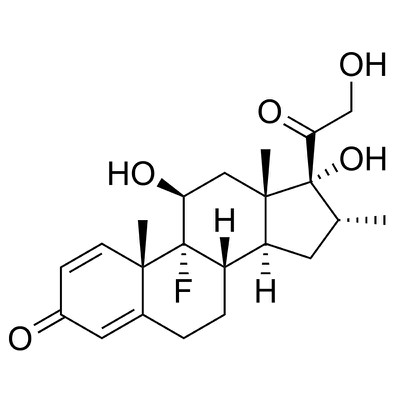
If you have any question, please feel free to email us. We will touch with you as soon as possible.
Dexamethasone is a medication that belongs to a class of drugs called corticosteroids. It is similar to a natural hormone produced by your adrenal glands. It is used to treat various inflammatory conditions such as arthritis, allergies, skin diseases, asthma, and brain swelling. It works by preventing the release of substances in the body that cause inflammation. It is also used in the treatment of certain types of cancer and to reduce symptoms caused by brain tumors.
Dexamethasone is a medication that is used to treat a variety of conditions. Some of the common uses include:
Dexamethasone's mechanism of action is primarily based on its anti-inflammatory and immunosuppressive properties. It is a synthetic glucocorticoid that binds to the glucocorticoid receptor, which is present in almost all cells. Upon binding, the receptor-ligand complex translocates to the nucleus and modulates gene expression. The main effects of dexamethasone include:
Dexamethasone is available in various formulations. It is available in strengths ranging from 0.5 mg to 6 mg as a tablet. Other administration forms are an injectable suspension or an oral solution.

CAS. No.: 50-02-2
Molecular Formula: C22H29FO5
Molecular Weight: 392.46
IUPAC Name: (8S,9R,10S,11S,13S,14S,16R,17R)-9-Fluoro-11,17-dihydroxy-17-(2-hydroxyacetyl)-10,13,16-trimethyl-6,7,8,9,10,11,12,13,14,15,16,17-dodecahydro-3H-cyclopenta[a]phenanthren-3-one
| CAT. No. | Dexamethasone Impurities | CAS. No. |
| REF-D03056 | 17-Oxo Dexamethasone (Dexamethasone Impurity 54) | 1880-61-1 |
| Name | Trade Name | Specifications | Dosage Form |
| Dexamethasone Tablets | DEXAMETHASONE | 0.75mg | Tablet |
| Dexamethasone Acetate Tablets | DECTANCYL | 0.5mg | Tablet |
| Dexamethasone Sodium Phosphate Injection | - | 10mg PHOSPHATE/ml | Injection |
| CAS. No. | Name | Molecular Formula | Molecular Weight |
| 55203-24-2 | Dexamethasone Sodium Phosphate | C22H28FNa2O8P | 516.40 |
| 14899-36-6 | Dexamethasone Palmitate | C38H59FO6 | 630.87 |
Tel:+86-020-61855200-673
Fax:+86-020-66392525
Email:info@upharm.cn
Address:12th floor, No. 181, Kexue Avenue, Huangpu District, Guangzhou, China